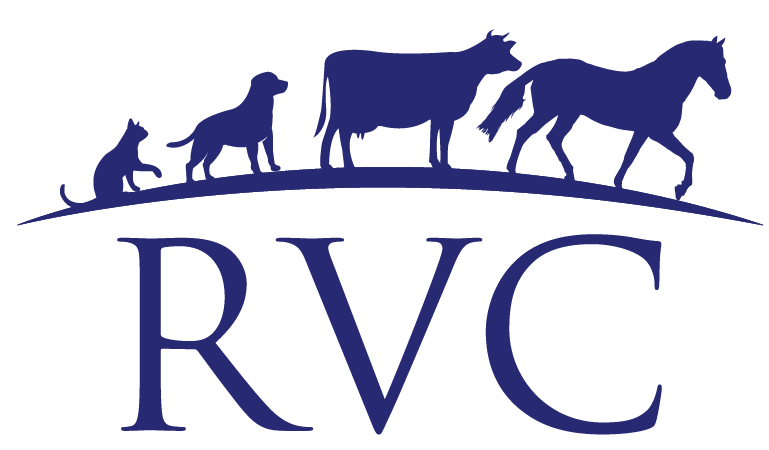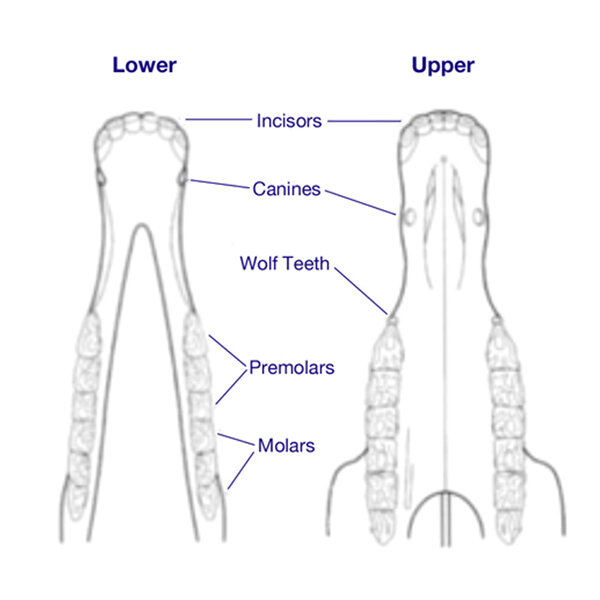Equine Dental Health
We want the best for your horse or pony. This includes offering the most up to date services and treatment options available. Our equine vets are specifically trained in all areas of horse veterinary medicine including Dental treatments.
Horses have a unique dental structure, in that their teeth continue to grow well into old age. Each tooth relies on being worn down by the opposing tooth. The circular motion in which the horse chews maintains the level of the occlusive (chewing) surface of the teeth.
The upper cheek teeth are set wider than the lower cheek teeth in order to efficiently grind their food. This is important in the wild to get the most out of poorer quality feed. As the particle size of the feed decreases, as with modern diets, the diameter of the circle in which the horse chews decreases as the grinding requirement is less. This causes sharp ridges to form on the outer edges of the upper teeth and inner edges of the lower teeth where there is less friction and wear.
Hooks, ridges and uneven wear patterns on horses teeth can cause extreme discomfort and ulceration of the mouth and tongue, which means the mouth becomes inefficient at preparing food for digestion. Problems that can occur as a result of poor dentition include: Poor performance, weight loss, pain, gum disease and colic. Check up of your horse's mouth should begin at six months and continue for life. This ensures problems are identified and treated appropriately, before they become harmful.
Modern diets, which are typically higher energy/sugar diets, cause the tooth surfaces to become exposed to a different range of breakdown products leading the teeth and gums, to wear/erode more rapidly, and unevenly. Due to the change in diet from the wild, of rough, abrasive feed, to higher quality domestic pasture and ‘hard’ feed, dental problems are becoming widespread.
The importance of dental health
Oral exams should start at birth to check for any congenital conformation problems to begin the process to rectify these.
Younger horses between the age of 1.5 and 5 years old can sometimes require more frequent dental exams because juvenile teeth tend to be softer and for this reason can develop sharp enamel points at a quicker rate.
Younger horses will also be shedding deciduous teeth, commonly seen as caps during dental treatment and erupting adult teeth (36-40 teeth).
It takes 5 years for adult teeth to all erupt, dental care during this time is paramount to ensure comfort for the horse, and to prevent training problems due to sharp teeth ulcerating the tongue and cheeks.
Developmental problems in horses teeth are quite common. As we have selected horses for purposes, such as speed and athletic performance, their mouths have been largely forgotten leading to a whole range of developmental/ congenital problems - many of which can be significantly helped if identified early and treated regularly. Small breeds and ponies are particularly at risk as the way they have been selected means they are trying to fit a large horse’s teeth into a small horse’s mouth.
SIGNS that a horse may need to have its teeth examined include: dropping feed while chewing, foul smell in the oral cavity, nasal discharge, and rotating the head while chewing to get food to the “good side” of the mouth. Performance-related issues that may indicate dental problems in horses with a bit in their mouth include refusal to work, head tossing/shaking and not turning to one side.
COMMON DENTAL PROBLEMS AND DISEASES that we see as vets, include: sharp enamel points, hooks, pulling wolf teeth, broken teeth, periodontal diseases, and tooth loss. With routine dental examinations, treatment usually involves removing any sharp points or hooks that have developed.
ROUTINE DENTAL EXAMINATIONS ARE ESSENTIAL to your horse’s health and importantly comfort of the mouth. It is generally accepted in the veterinary world that your horse should have its teeth examined at least once a year if not twice, depending on each individual horses circumstances.
Wolf Teeth
Wolf teeth are vestigial molar teeth which have no function. They are present on the upper jaw only, on either one or both sides. Although in rare cases they can occur on the lower jaw. They generally erupt from 5-12 months and not all horses will have them.
Wolf teeth are normally removed, this is probably due to it historically always been done, rather than the fact that the teeth are actually causing problems. However, if the horse is having issues with the bit and when being ridden the only way to find out if the wolf teeth are the cause, is to remove them.
Wolf Teeth Removal
Removal is generally easy and without complications, although it is important to note that this is not always the case.
Recently, new regulations under the Animal Welfare Act 1999 came into effect. These regulations clarify who can carry out certain surgical procedures on animals and how they should be done. In regards to wolf teeth extraction, current animal welfare standards state that they should not be removed without pain relief being given. At a minimum this should include local anaesthesia.
In order to accurately place the needle to give the anaesthesia, sedation is highly desirable. If the teeth have particularly long roots or extraction is prolonged, a short course of an anti-inflammatory (bute) treatment should also be considered.
Failure to provide the minimum standard of pain relief would be a breach of animal welfare regulations and could lead to legal proceedings being taken against the person in charge of the horse.
Rangiora Vet Centre offers a complete range of dental care for your horse, including the use of a power dental float, and crush facilities. If you have any queries relating to the article or would like a dental examination of your horse please contact the clinic to be put in touch with a member of our equine veterinary team.



